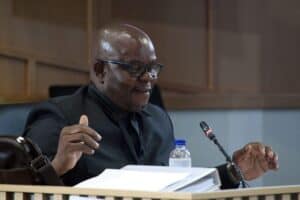Water and electricity services were cut at schools in 2025 due to unpaid bills amounting to almost R60 million.

Schools throughout Gauteng have experienced multiple days without electricity in the first half of this year.
Schools responsible for paying their own municipal bills defaulted to the tune of millions, leaving thousands of classrooms dark.
Many of those affected are no-fee paying schools, with some questioning the wisdom of giving them the responsibility of covering their own bills.
School electricity disconnections
The financial situation at the schools was shared in a written response to an issue raised by the DA shadow MEC for education, Sergio dos Santos.
A detailed list provided by Education MEC Matome Chiloane’s office showed that 536 schools endured some sort of billing-related disconnection in 2025.
Of those, 293 were for a period of at least 30 days, while another 250 experienced disconnections lasting between seven and 18 days.
Four of the schools had their water disconnected for periods between 10 and 27 days, with the remaining schools having had their electricity disconnected.
There were 16 schools that had their water, electricity, waste and sewerage services disconnected simultaneously.
“This made it impossible to provide lighting in classrooms, power educational technology, and maintain hygiene and safety standards,” stated Dos Santos.
“The utility crisis has serious implications for learners’ dignity, health, and access to quality education, particularly in schools with limited resources to cope,” he added.
Almost R60 million owed
The value of the unpaid municipal accounts amounts to R58 million, with the schools disconnected for 30 days, owing over R100 000 each.
Schools with the highest bills include Fleurhof Primary with an overdue amount of R3.8 million, R1.6 million owed by Soshanguve South Primary, and R1.9 million owed by Fusion Secondary in Lotus Gardens.
These schools have section 21 status under the South African Schools (SAS) Act, with the national education department’s 2024 document on norms and standards for school funding explaining the distinction.
“Schools that have section 21 responsibilities, or functions, receive the school allocation as a transfer into the school bank account,” read the document.
“Schools that do not have section 21 responsibilities do not receive the school allocation of money. Instead, the school works together with the department to decide what the school allocation should be used for, and the department buys the goods for the school.”
Over 2 000 new Section 21s
The Gauteng Department of Education (GDE) said in the last five financial years, 2 034 schools were given greater financial autonomy under this clause.
Asked what criteria were used to determine if schools could handle such responsibility, Chiloane said the GDE gauged the school’s capacity to perform such functions effectively.
“To establish this, the GDE also looked into the ability of the governing body to manage finances,” stated Chiloane.
“To empower governing bodies to manage the Section 21 functions, the department ensures that schools are trained in financial management as soon as new governing bodies are elected,” he added.
“The governing bodies of schools are also expected to take all reasonable measures to supplement the resources supplied by the state in order to improve the quality of education provided by the school,” Chiloane explained.
‘Utility crisis’
The MEC stated that while they provide financial oversight, they did not keep municipal accounts for the school.
He added that the GDE was unable to settle the arrears but stated that they “anticipate” schools will be caught up by 30 June.
The GDE had been engaging with municipalities over the debt and confirmed on Wednesday that necessary funds had been transferred to all identified schools.
“These funds are allocated towards the payment of each school’s respective municipal account,” GDE spokesperson Steve Mabona told The Citizen.
“As such, identified schools that have received the funds are obligated to pay their municipal accounts accordingly,” Mabona explained.
NOW READ: More than 7 000 grade R teachers aren’t qualified to teach their class






